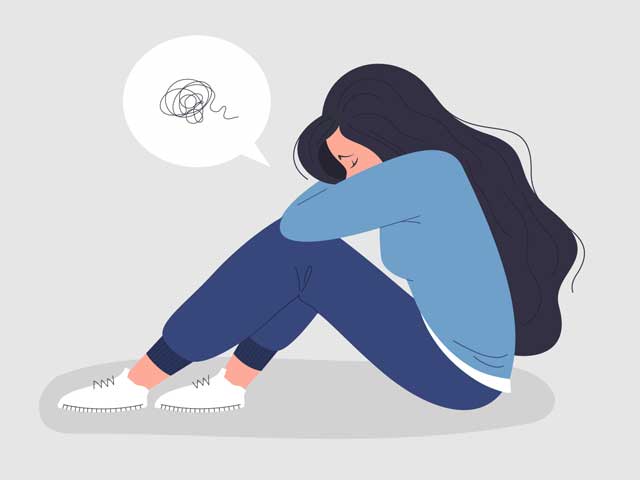
What is Depression
Depression (major depressive disorder) is a serious but widely treatable medical illness that affects how positive you feel, think and behave. It is characterized with a constant state of sadness and loss of pleasure even under good conditions. It can cause a variety of emotional and physical symptoms making everything worse. People with depression have a reduced ability to perform social and professional tasks.
This illness affects one in 20 adults worldwide and is twice as common in women as in men. Female biological cycles like menstruation, pregnancy and menopause seem to be playing a major role in this big gap.
This illness can occur at any age and those who have depression once have a higher chance of getting it again later in life.
What are the symptoms of depression?
It is normal to feel down during sad and distressing events. Losses and disappointments make all of us feel bad to some extent. However, those suffering depression are in a constant state of sadness, where they somehow seem to lose “hope”. Here are some symptoms to differentiate clinical depression:
- Feeling sad all the time
- Loss of interest and pleasure in daily activities
- Various appetite problems like anorexia nervosa or overeating
- Difficulty falling asleep, frequent awakenings or oversleeping
- Feeling tired all the time
- Slowness of speech and movements
- Feeling worthless and guilty
- Loss of concentration, difficulty making decisions, brain fogs
- Self harming and suicidal tendency
If these symptoms persist for two weeks, this may indicate the presence of clinical depression and a professional must be visited.
What are the causes of depression?
There is no single cause of depression. Psychological, biological and social factors can all be the cause. When global depression maps are analyzed, it can be observed that the disease is much more common in regions where political uncertainties and income inequality are high.
On an individual level, each of us can be affected by a single bad experience. Some of these reasons include:
- Early loss of a parent
- Separation or death of a loved one
- Low socioeconomic level
- Job loss
- Alcohol or drug addictions
- Divorce
- Childhood traumas
How is Depression Diagnosed?
Depression is a well-defined and classified disorder in psychiatry. It is best diagnosed with a good history from the patient. There is also a test that physicians use.
The disease is often confused with generalized anxiety disorder. Generalized anxiety disorder is a state of intense worry and anxiety unrelated with real life conditions. This affects a person’s daily and social life. The worries are often related to work, health, economic problems or family. The uncontrollable state of anxiety must persist for at least 6 months to be diagnosed with this issue. Generalized anxiety disorder and depression are completely different illnesses.
Are there simple ways to get rid of depression?
If some of the symptoms listed above have been going on for at least two weeks, you should consult a psychiatrist. Depression is treated with psychotherapy as well as medication, and success rates are very high as long as the patient follows doctor’s advices. If you or a loved one is suffering this or such mental problems, keep in mind that family and peer support is extremely helpful for fast recovery.
Life style seems to be playing a significant role in the likelihood and magnitude of mental disorders. Therefore, active life, healthy eating and meditation can be very effective precautions to set a barrier between you and depression.



